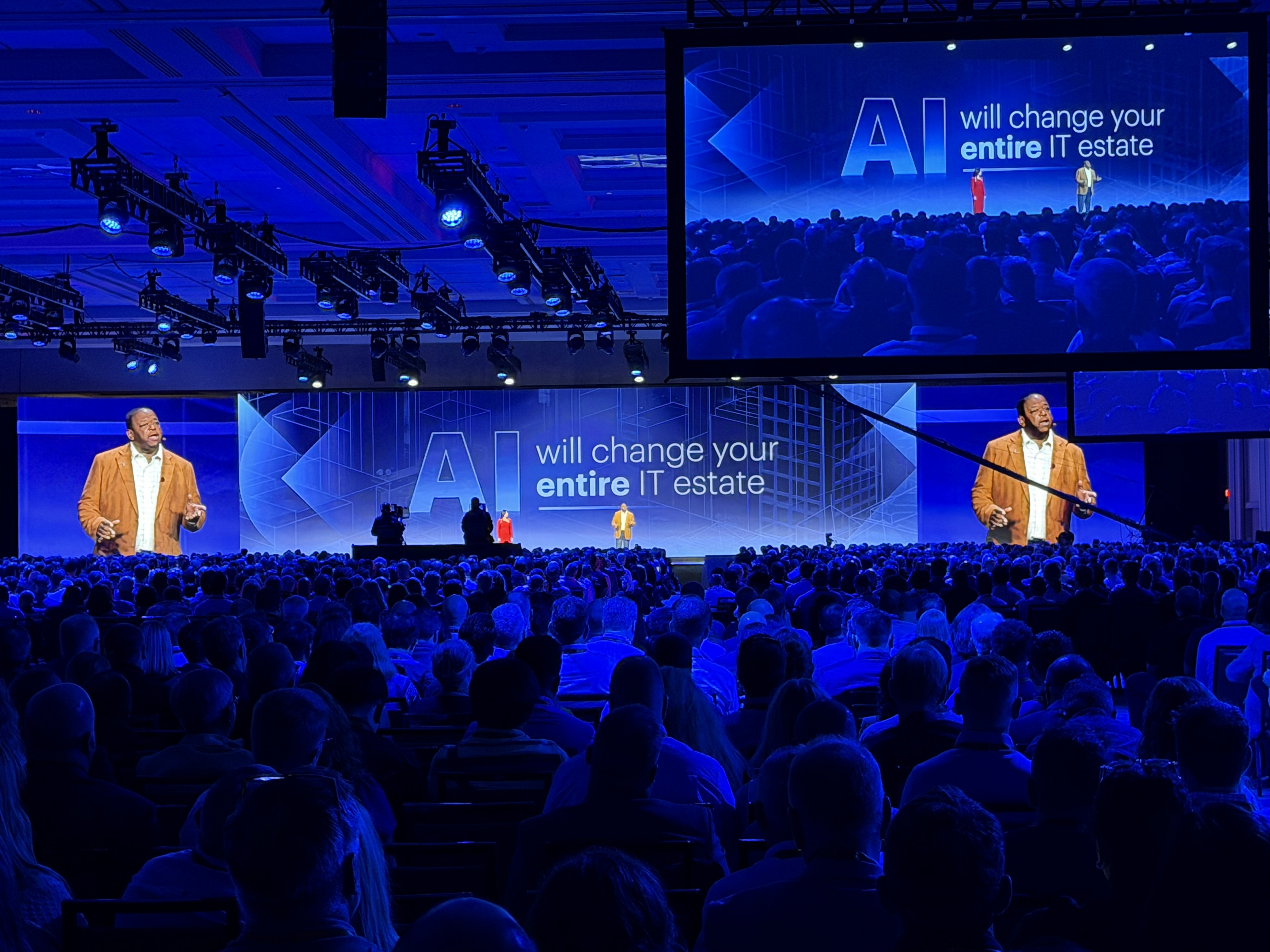 AI
AI
 AI
AI
 AI
AI
Generative artificial intelligence tools and AI agents will trigger a $58 billion shakeup in the software market, opening the door for new competitors to enter as customers will be less locked in by legacy formats.
Within two years, three-quarters of hiring processes will include some form of AI proficiency testing as AI’s influence grows on workplaces, regulation and global markets.
Those are two of the predictions Gartner Inc. released this morning at its IT Symposium/Xpo in Orlando, Florida (pictured) Gartner Fellow and Chief of AI Research Daryl Plummer said AI is changing the rules of technology adoption. “CIOs can’t just prioritize tech upgrades anymore,” he said. “They have to prioritize how people adapt to it.”
Although AI skepticism still abounds — Pew Research Center recently reported that half of Americans are more concerned than excited about the increased use of AI in daily life — the corporate world is rapidly buying in. Gartner believes most recruiters will favor candidates who can use generative AI to solve problems, improve productivity and make informed decisions.
But there are also real concerns about what the research firm calls “atrophy of critical-thinking skills, due to GenAI use.” It expects half of global organizations to require “AI-free” skills assessments by next year to gauge candidates’ critical thinking abilities. Human judgment will continue to be critical in high-stakes fields such as law, finance and healthcare. Achieving this balance will lengthen the hiring process with demand rising for people who can still “think for themselves.”
On the geopolitical front, Gartner predicts that by 2027, 35% of countries will be locked into regional AI platforms due to regulations and cultural factors. As global AI systems fragment, multinationals will need to juggle multiple platforms to stay compliant, complicating everything from development to deployment.
Multi-agent AI, or hybrid systems where machines handle routine tasks and humans focus on complex customer interactions, are ascendant. By 2028, Gartner expects 80% of customer-facing processes in leading organizations to be driven by AI agents, delivering faster, lower-effort service and improved customer loyalty.
AI’s transactional impact will be greatest in business-to-business scenarios. Gartner predicts that 90% of B2B purchases in 2028 will be mediated by AI agents, representing over $15 trillion in spending. These agents will compress sales cycles, use operational data as currency and demand strong digital trust frameworks. Winning companies will be those that embrace composable technologies and machine-to-machine transactions.
But AI has its dark side as well. Gartner forecasts that by the end of 2026, legal claims related to AI-induced safety failures ranging from autonomous vehicle mishaps to flawed medical recommendations will top 1,000 globally. These incidents will drive stricter regulatory oversight and more expensive litigation. The quality of a firm’s AI guardrails could become a competitive advantage.
Programmable money, or digital transactions with embedded conditions, will become a foundational layer for AI-driven commerce. By 2030, Gartner expects 22% of financial transactions to include programmable terms to give AI agents economic agency. This shift will enable more autonomous business operations but also introduce security and interoperability challenges.
The need for AI governance will spawn a patchwork of fragmented AI regulations covering 50% of the global economy by 2027. Corporations will spend more than $5 billion on AI compliance and build permanent governance programs to keep up with changing laws.
Gartner’s overall outlook paints a picture of a rapidly evolving digital economy where AI is a force that redraws boundaries in hiring, commerce, law and international business. The research firm said leaders who address both the technical and behavioral aspects of this transformation will be the best-equipped to thrive.
Support our mission to keep content open and free by engaging with theCUBE community. Join theCUBE’s Alumni Trust Network, where technology leaders connect, share intelligence and create opportunities.
Founded by tech visionaries John Furrier and Dave Vellante, SiliconANGLE Media has built a dynamic ecosystem of industry-leading digital media brands that reach 15+ million elite tech professionals. Our new proprietary theCUBE AI Video Cloud is breaking ground in audience interaction, leveraging theCUBEai.com neural network to help technology companies make data-driven decisions and stay at the forefront of industry conversations.